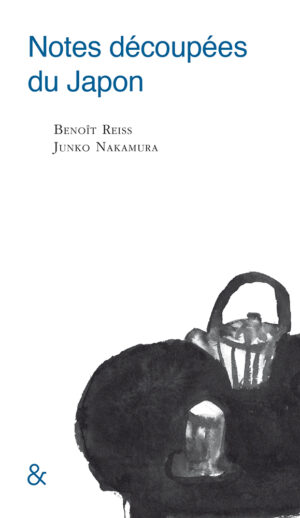
A Frenchman living in Japan teaches his language to Japanese people who are passionate about the complexities of French conjugation. With the eyes of a foreigner, admiring and astonished, curious and seduced, he observes the people—the young, the old, the salarymen, the sleeping spectators at the Kabuki—, the food—the rāmen, the rice cookies, the elegant jelly cakes—, the nature—the frogs, the cherry trees, the birds, the cedars, and the water, especially. Lakes, the sea, hot springs, rain, rivers, the black waves of deadly tsunamis.
With a bare, contemplative and unpretentious writing style, Benoît Reiss describes a few moments of this life, fragments cut out of the continuity of existence, as many snapshots that tell the beauty and poetry of the “little things” of daily life in Japan.
Junko Nakamura’s Chinese inks, between exotic landscapes and ordinary details, punctuate this narrative and inhabit the space between these “cut-out notes”, which she gathers with a brush stroke.
